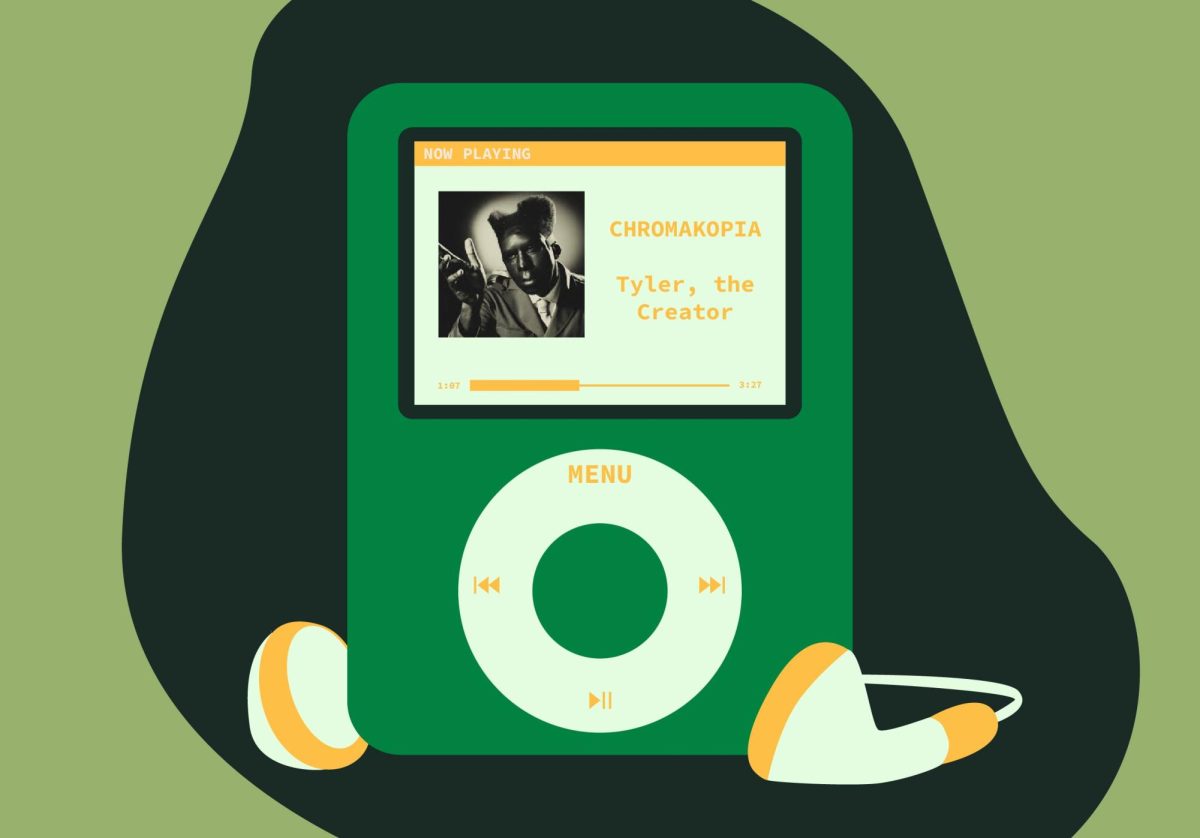Sometimes an artist will release an album made for live performance. Considering two of my best friends have already purchased their tickets for the upcoming tour, “CHROMAKOPIA” by Tyler, the Creator is one of those albums.
Released on Monday, the eighth studio album by Tyler Okonma is a dissection of the impact fame and growing older is having on the American rapper and record producer. Fans have been anticipating a new release since the 33-year-old rapper’s last album, “CALL ME IF YOU GET LOST: The Estate Sale,” was released in 2021.
The album begins with a chorus of marching feet in “St. Chroma (feat. Daniel Caesar)” that builds excitement for the rest of the album. The song heightens the pressure the musician has experienced in his life to keep creating music, repeatedly promising his mother he will “make it out” in the song.
But he also begins to question if the artistry he pursues is worth it.
“I just need this time to myself / to figure me out-out / Do I keep the light on or do I / gracefully bow out?” Tyler asked in “St. Chroma (feat. Daniel Caesar).”
The pressures of growing fame is a theme present throughout the album, as Tyler struggles to find the motivation he once had as the music industry and fan expectations change.
In “Noid,” one of the singles off the album, Tyler criticizes the current fan culture cultivated by social media and his growing paranoia at the dangers that come with it.
“I can’t even buy a / home in private / Home invasions / got my brothers / dyin’ / Notice every car / that’s drivin’ by / I think my / neighbors want me / dead,” Tyler said in the second verse of “Noid.”
Throughout his career, Tyler has repeatedly expressed how much he values his personal life and peace. But he cannot avoid instant fan interactions requesting a photo or a selfie before leaving him alone.
Tyler’s distaste for this kind of interaction is further unpacked in the music video for “Noid” as actress Ayo Edebiri portrays a crazed fan, begging Tyler for an interaction. The uncomfortable closeness of Edebiri, gun in hand as she begs for a photo, and haunting invisible figures that threaten the masked musician illustrate the anxiety that Tyler lives with at this point in his career.
Another strength of Tyler’s music is the humor present in his albums. The seventh track on his album, “Judge Judy” is a clear example of his humor and wordplay. He tells the story of a woman he had a relationship with while referencing the reality television persona, Judge Judy.
Surrounded by the humor and sexual innuendo, Tyler reveals the lasting impact the short-lived romance had on him after he receives a letter from Judy. She apologizes for losing touch with him and informs him she has passed away from cancer.
She leaves him with a final request, “I hope you live your life, / your truest self with no / regrets / I wasn’t living right / until they told me what / was left. / I’m wishing you the / best, P.S. / Thank you for not / judging, Judy, damn.”
Following in the footsteps of “CALL ME IF YOU GET LOST” and “Igor”, Tyler, the Creator leads longtime fans and new listeners through the landscape of the music industry for all its bright lights and flaws in “CHROMAKOPIA.”














